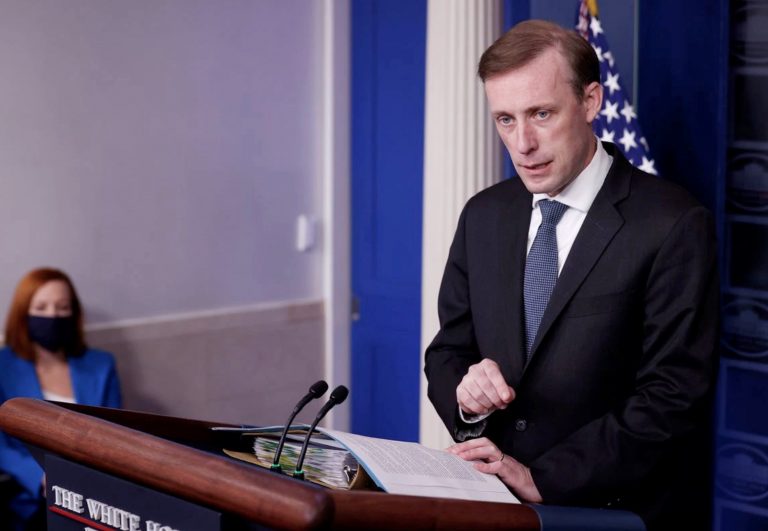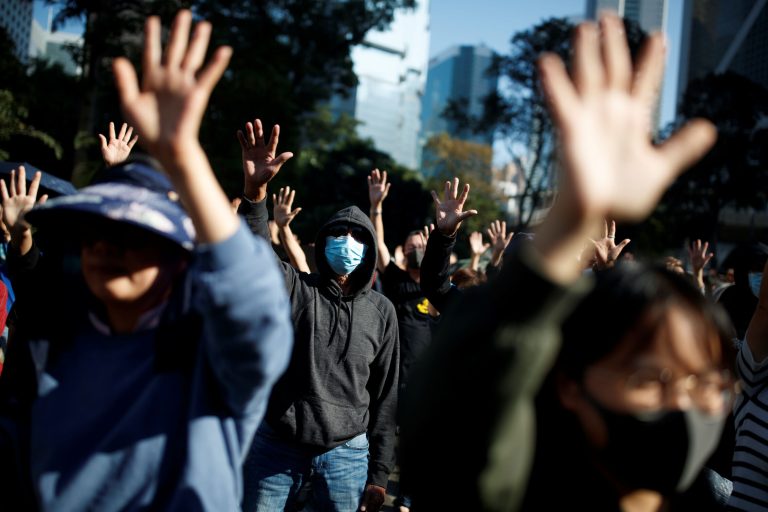During the Nov. 15 virtual summit held between U.S. President Joe Biden and Chinese leader Xi Jinping and hosted by the Brookings Institution, Biden said their responsibility was “to ensure that the competition between our countries does not veer into conflict, whether intended or unintended.”
“The two leaders agreed that we would look to begin to carry forward discussions on strategic stability,” White House national security advisor Jake Sullivan remarked during a readout of the meeting.
Sullivan also said that Biden and Xi discussed, in detail, a number of areas where miscommunication or miscalculation could lead to challenges in the two countries’ relationship. Biden “stressed the need to develop ways to manage strategic risks and to put into place common sense guardrails to ensure that competition doesn’t veer into conflict,” Sullivan said.
Long talk, little progress
Biden and Xi spoke for about three and a half hours, but the discourse appeared to do little to narrow differences.
Sullivan said Biden discussed human rights issues with the Chinese leader. “He raised American concerns about China’s practices in Xinjiang, Tibet, and Hong Kong. He raised concerns about human rights more broadly” as well.
Success
You are now signed up for our newsletter
Success
Check your email to complete sign up
“The two leaders spent a good amount of time on the question of Taiwan, and President Biden underscored his commitment to the One China policy which is guided by the Taiwan Relations Act, the three joint communique, and the six assurances,” Sullivan said.
Biden also reminded Xi that “he voted for the Taiwan relations act as a senator,” Sullivan added. Meanwhile, Xi welcomed more positive relations with the U.S., but warned that anyone who crosses the Chinese Communist Party’s line on Taiwan — a democratic state that Beijing claims is a renegade province — would be “burnt.”
‘Concrete results’ past due
Following this virtual meeting, Senator Jim Risch (R-ID), the ranking Senate Foreign Relations Committee member, said in a statement, “While President Biden used this meeting to raise concerns regarding Beijing’s unfair trade and economic practices and the importance of transparency in global health, it’s past time for concrete results from Beijing. If President Xi actually wants a cooperative relationship with the United States, then he must stop threatening Taiwan.”
Xie Tian, Professor of Marketing and John M. Olin Palmetto, Chair Professor in Business at the University of South Carolina Aiken, warned that if the United States did not deter the CCP it would increase the danger of a conflict breaking out in the Taiwan Strait.
Sullivan noted that “In September, Biden hosted the Quad summit for the first time here in Washington and launched a new trilateral security partnership with Australia in the United Kingdom.“
He also stated that Biden is establishing a blueprint for working together with European partners, “All of this is about working with like-minded partners to write the rules of the road for the 21st century in a way that advances our interests, reflects our values and yes pushes back on China’s non-market economic practices.”
While Sullivan said President Biden has been preparing for this meeting for 10 months, there are some differences of opinion from the Chinese American community about how much the meeting achieved.
Overseas Chinese worry about setback
Han Lianchao, the vice president of Citizen Power Initiatives for China, viewed the meeting as a setback.
In a Chinese-language Twitter post, Han wrote of the Biden-Xi virtual meeting that “Xi Jinping used the meeting to give Biden a lesson while attempting to bring him closer Biden has backtracked dramatically, promising to guarantee the security of the communist regime, not to build an alliance against the [Chinese Communist] Party-state. [Biden] veered away from confronting the Party-state, betrayed the right of self-determination granted to the people of Taiwan by the U.N. Charter, and was silent about holding accountable for CCP Virus [COVID-19]. Actually, the confrontation between the United States and the Party-state is a life-and-death fight between two fundamentally different systems and ideologies.”
Chinese pro-democracy activists, Tibetans, and Uyghurs expressed their voices and displayed their flags around the White House in Lafayette Park on Nov. 15 as the summit took place.
Mr. Bai Jiemin, President of the U.S. East Branch of the China Democracy and Human Rights Alliance, told Vision Times, “Don’t have any illusions about the CCP.”
The world must “keep tracing the source of the CCP Virus; Eliminate the anti-human CCP fascist regime; crack down on CCP infiltration and Defend democracy,” he said, using a term for the novel coronavirus that highlights the Party’s coverup and political manipulation of the pandemic after the first outbreak ravaged central China in late 2019 and spread globally.















